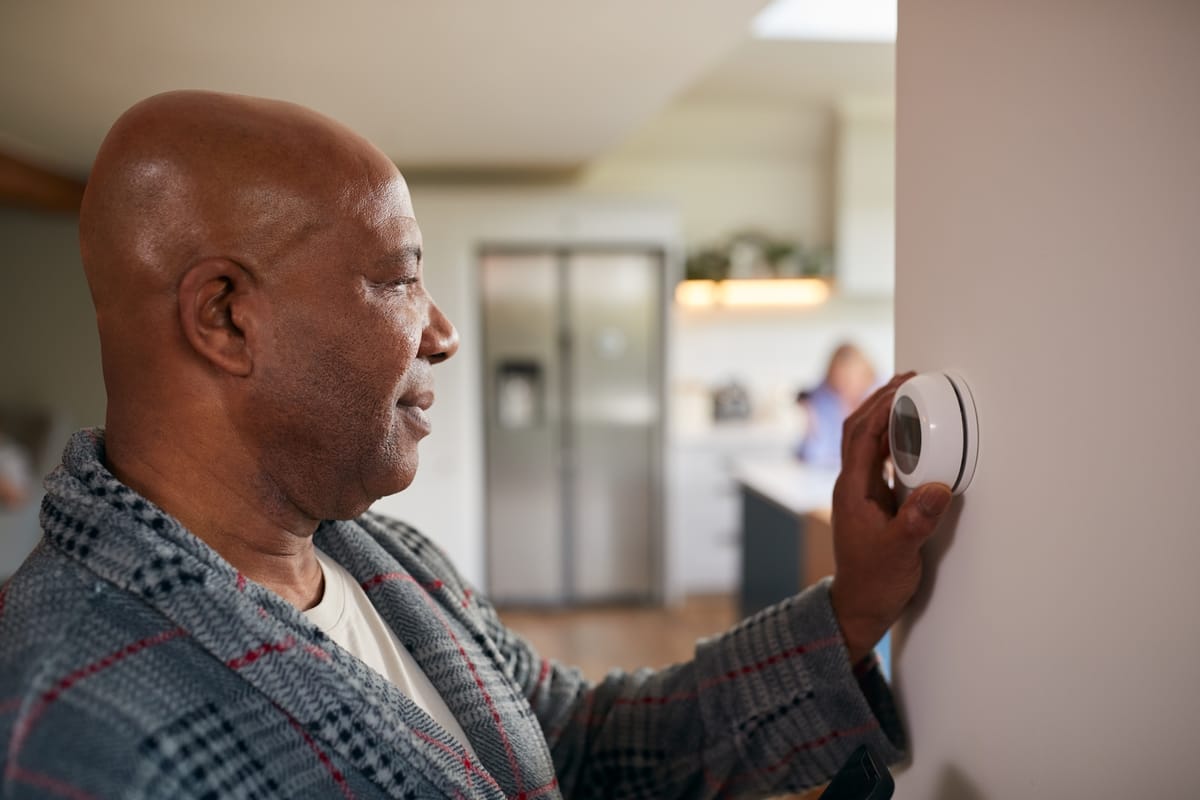

The Importance of Indoor Temperature for Cognitive Health
Recent research has shed significant light on the impact of indoor temperatures on the cognitive health of older adults. A study conducted by scientists at the Hinda and Arthur Marcus Institute for Aging Research has identified a strong link between indoor temperatures and cognitive performance in seniors. This study, which monitored home temperatures and self-reported attention levels in 47 community-dwelling adults aged 65 and older over a year, provides valuable insights into how environmental factors influence brain function.
The findings indicate that older adults experience the least difficulty maintaining attention when their home temperatures are within the range of 68–75 degrees Fahrenheit. This optimal range is crucial because deviations from it can significantly increase the likelihood of attention difficulties. For every 7-degree Fahrenheit variation in either direction, the risk of cognitive lapses doubles. This is particularly concerning for low-income and underserved populations, who may lack the resources to regulate their home environments effectively.
The study used smart sensors to continuously monitor temperature and humidity levels in the participants' main living spaces. Participants also completed smartphone questionnaires twice a day, reporting their perceived temperature and attention levels. This approach allowed researchers to study the effects of temperature in a natural home environment, providing more realistic and applicable data compared to controlled laboratory settings.
Implications for Cognitive Health
The implications of this study are far-reaching as the cognitive health of older adults is at increased risk. The research underscores the need for public health interventions and housing policies that ensure access to temperature-controlled environments is critical for protecting their cognitive well-being.
The study's findings also highlight an asymmetry in how people react to temperature fluctuations. Participants reported greater cognitive difficulties when they felt cold compared to when they felt hot, indicating a greater sensitivity to cold temperatures. This asymmetry suggests that maintaining a warm and stable indoor environment may be more crucial than previously thought.
Solutions and Interventions
To address the cognitive risks associated with temperature variations, several solutions have been proposed. Integrating smart home technologies can help regulate indoor temperatures efficiently, ensuring that older adults live in a comfortable and stable environment. Energy-efficient housing is another critical aspect, as it can lower costs and ensure consistent comfort without straining financial resources.
Expanding access to cooling resources is also essential, particularly for underserved communities. Public health interventions should focus on providing affordable and effective cooling solutions to mitigate the environmental impacts on mental and cognitive well-being. This could include subsidies for air conditioning units, community cooling centers, and educational programs on managing indoor temperatures.
Impact on Low-Income and Underserved Populations
The study's findings are particularly concerning for low-income and underserved populations. These individuals often have limited access to adequate cooling or heating systems, making them more vulnerable to cognitive decline caused by environmental stressors. As a result, these populations face a disproportionate impact from temperature fluctuations, emphasizing the need for targeted interventions and support.
Policy makers and public health officials must consider these disparities when developing strategies to protect the cognitive health of older adults. This includes investing in affordable housing initiatives that incorporate energy-efficient and climate-resilient features, as well as providing resources for maintaining a comfortable indoor environment.
The Role of Smart Home Technologies
Smart home technologies can play a pivotal role in maintaining optimal indoor temperatures for older adults. These technologies can automate temperature control, ensuring that the home environment remains within the optimal range without constant manual adjustments. Additionally, smart sensors can monitor temperature and humidity levels, providing real-time feedback and adjustments to maintain a comfortable living space.
Implementing smart home technologies can also be cost-effective in the long run. By optimizing energy usage and reducing the need for continuous heating or cooling, these systems can lower utility bills while providing a healthier living environment.
Community and Public Health Initiatives
Collaborations between healthcare providers, community organizations, and housing authorities can lead to more comprehensive and effective solutions. For instance, healthcare providers can offer guidance on indoor temperature management as part of routine health check-ups, while community organizations can provide support for installing energy-efficient appliances and smart home technologies.
Maintaining Cognitive Health Through Optimal Indoor Temperatures
In summary, the optimal indoor temperature range of 68-75°F is critical for maintaining the cognitive health of older adults. The study's findings emphasize the need for public health interventions, housing policies, and community initiatives that prioritize climate resilience and indoor temperature control. By understanding and addressing these environmental factors, we can better protect the cognitive well-being of our aging population.
It is imperative that we take proactive measures to ensure that older adults have access to temperature-controlled environments. This involves not only policy changes but also community support and individual actions. By working together, we can create a more supportive and healthy living environment for seniors, enabling them to live with greater dignity and cognitive integrity.
Useful Links
BGR: Indoor temperatures can affect the brain function of elderly people
The Jerusalem Post: Study reveals optimal home temperature for elderly brain health
Dues are $12 per year. Member benefits:
✅ Ad-Free Website Viewing
✅ Advocacy for Republican Seniors
✅ 120+ Senior Discounts
✅ Member Only Newsletters